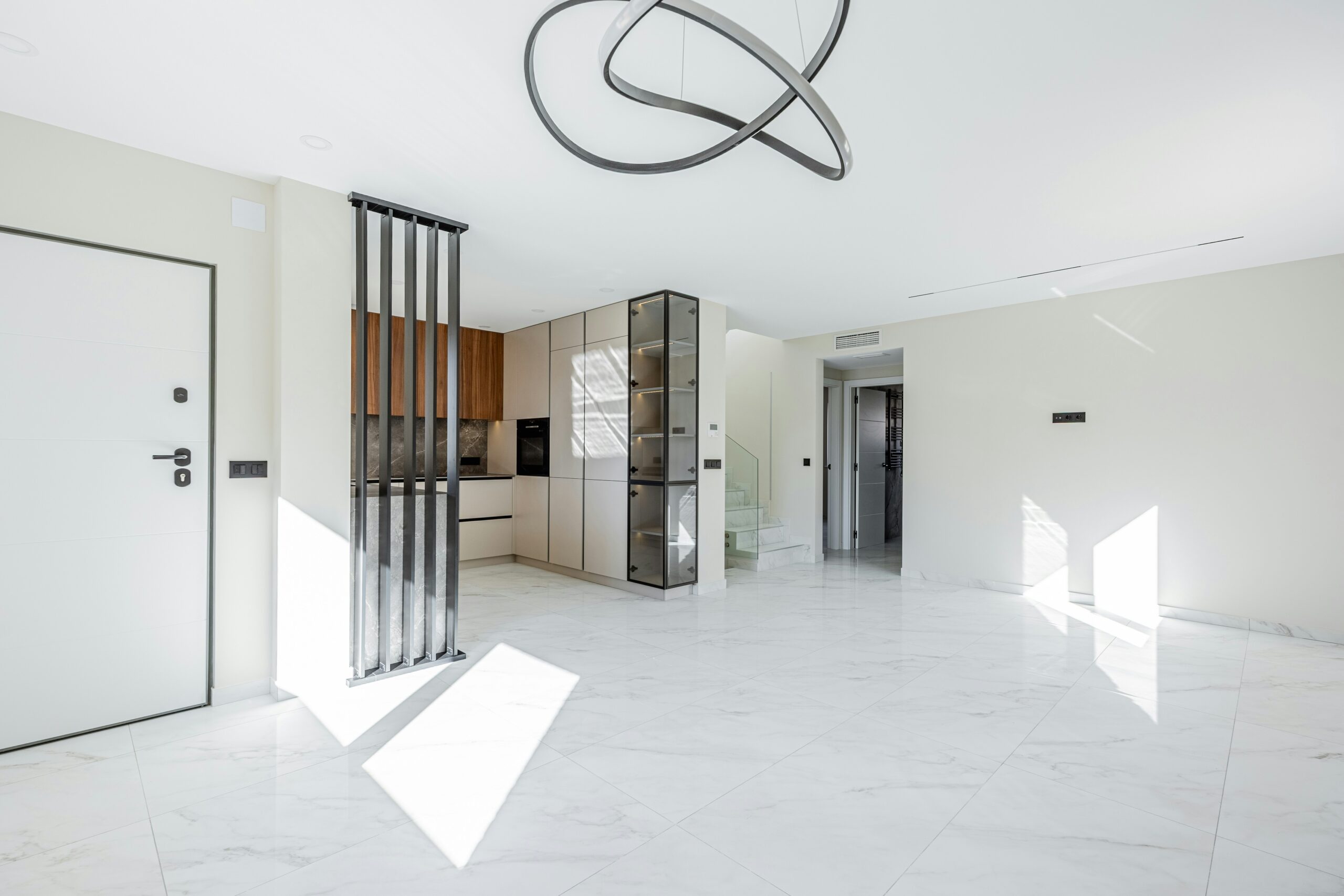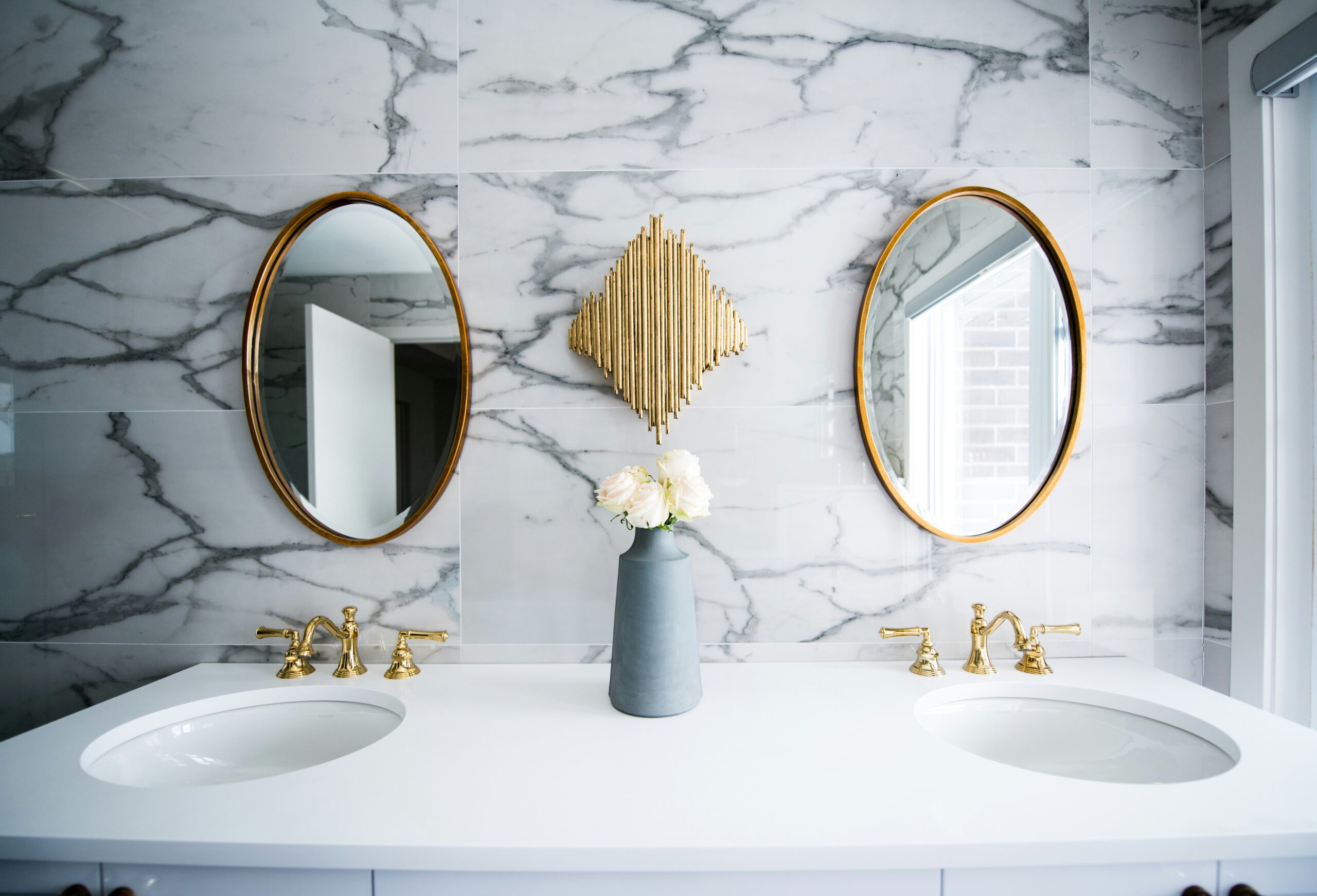Open-plan living spaces have become increasingly popular in home design. The seamless flow design allows for easy access to different areas of the home and helps to create a sense of spaciousness and facilitate social interaction.
Traditional layouts, on the contrary, often have multiple separate rooms, separated by doors and walls, which – while offering other advantages – don’t offer the same feeling of spaciousness.
If you are building or renovating an open living space and are looking to incorporate some marble stone – you have come to the right place. In this article, we will help you develop the perfect marble open-plan design to create the home of your dreams.
Understanding Open-Plan Living
Before we dive into marble stone ideas, let’s ensure we understand how such a design differs from traditional living rooms.
1. Zoning
Unlike traditional homes, open-plan living rooms require careful consideration of zoning. Different areas will serve different functions, for example cooking, dining or just recreational relaxing. Your design should reflect the different areas and different purposes each serves.
2. Visual continuity
There are many luxury interior design trends that suit open-plan living. However, they all have one thing in common: Effective visual continuity. To really bring your space to life in a cohesive way, it is important that you maintain the visual harmony from one end of the open-space to the other. Remember: Visual continuity includes everything from colour to style and even texture.
3. Placement of furniture
There are many ways to incorporate a marble open-plan design to achieve your desired atmosphere, but you should also consider how the placement of your furniture will complement or hinder how you intend to use the space. Sofas, tables and other furniture can be used to divide the space effectively or can be positioned to complement the surrounding marble interior.
4. Lighting
Open-plan spaces need sufficient yet cohesive lighting so that the different areas can all function independently and yet all complement each other to create a single, focused lighting scheme.
5. Flow
Flow is important when it comes to traditional living spaces as well, but in an open-plan home it requires careful consideration. For one thing, traffic patterns may be harder to predict and require some design-related management. For another, you don’t want to compromise the very thing for which open-plan living is appealing with your design: Spaciousness.
6. Acoustics
Open-plan spaces tend to be more noisy than traditional spaces. From your choice of design material, such as luxury marble, to your placement of furniture, acoustic reverberation and echoes can be effectively controlled with the right decisions.
7. Focal points
Traditional living rooms are often designed around a single element that acts as a focus point. Sometimes this is a coffee table and sometimes it is a fireplace. With open-plan spaces there is potential for multiple focal points for different areas. While this may not be a problem depending on how you intend on using the space, it does require some prior planning and forethought.
Bring Your Luxury Living Space to Life
How to Incorporate Marble Open-plan Design
Are you looking for some marble design ideas for your open-plan home or living space? Here are some ideas to provide you with inspiration.
Marble floors
The inherent design and layout of an open-plan living area makes the floor more than just something to work on: It’s a potential piece of art. Using marble flooring throughout this area helps to create a unified, glamorous look that will be even more impactful than a smaller, more enclosed space.
Marble columns
Some columns in a home serve load-bearing or other functional purposes. Others don’t. Either way, your columns present another unique opportunity to infuse some luxury interior design ideas. A marble column can help to add a glamorous touch to the open-plan space and provide opportunity to differentiate between different zones without making the open feeling of the room feel compromised.
Marble furniture
It is common to think of floors and walls when it comes to marble stone. But there is no reason, especially for those on a budget, to limit yourself to big picture items. Even a marble coffee table or end table can work as wonderful statement pieces and focal points to help anchor the design of a room.
Accent wall
One challenge of incorporating wall cladding into an open-space is the potential difficulty and cost of installation across such a large area. This is where an accent wall, sometimes referred to as a statement wall, comes into play. You can choose any shade or style of marble you prefer and use it to bring a particular wall to life. It is an effective and understated way of infusing colour, personality and style into your home.
Kitchen countertops
Marble kitchen countertops are a common application of this luxury material. Fortunately, in an open-plan home there is more opportunity for such a beautiful and eye-catching benchtop to bring aesthetic pleasure to more than just the food preparation space.
How to Choose the Right Marble for Your Luxury Interior
Once you have an idea of how and where you want to incorporate marble in your open-plan design, you need to find the right marble stone.
With the enormous range of colours, patterns and styles, the choice can be overwhelming.
The key is to understand what you are trying to achieve in terms of feel and ambiance. Do you want a warm and earthy atmosphere? Then opt for marble stone that is a shade of brown, beige or even soft blue or green.
For a light and airy feel that complements the spaciousness we know and love in an open-plan space, opt for white or offwhite marble. There are even options to choose a marble slab with coloured veining if you want to include a spot of colour and visual depth. Plus, lighter colours will reflect more natural light and brighten the space effectively.
If it is a more sophisticated and refined look that you prefer, gray or mauve toned marble is the way to go. Alternatively, you might want to choose a gold, black, or even deep blue marble to add depth and bold luxury to your living space.
Euro Marble - we’re here to bring your living space dreams to life
Would you like more marble flooring ideas? Wondering how to best incorporate marble effectively to create a luxury interior?
The Euro Marble team is always here to help and happy to discuss all things marble open-plan design. So, contact us today and let’s explore how to use marble in your open-plan living spaces.



